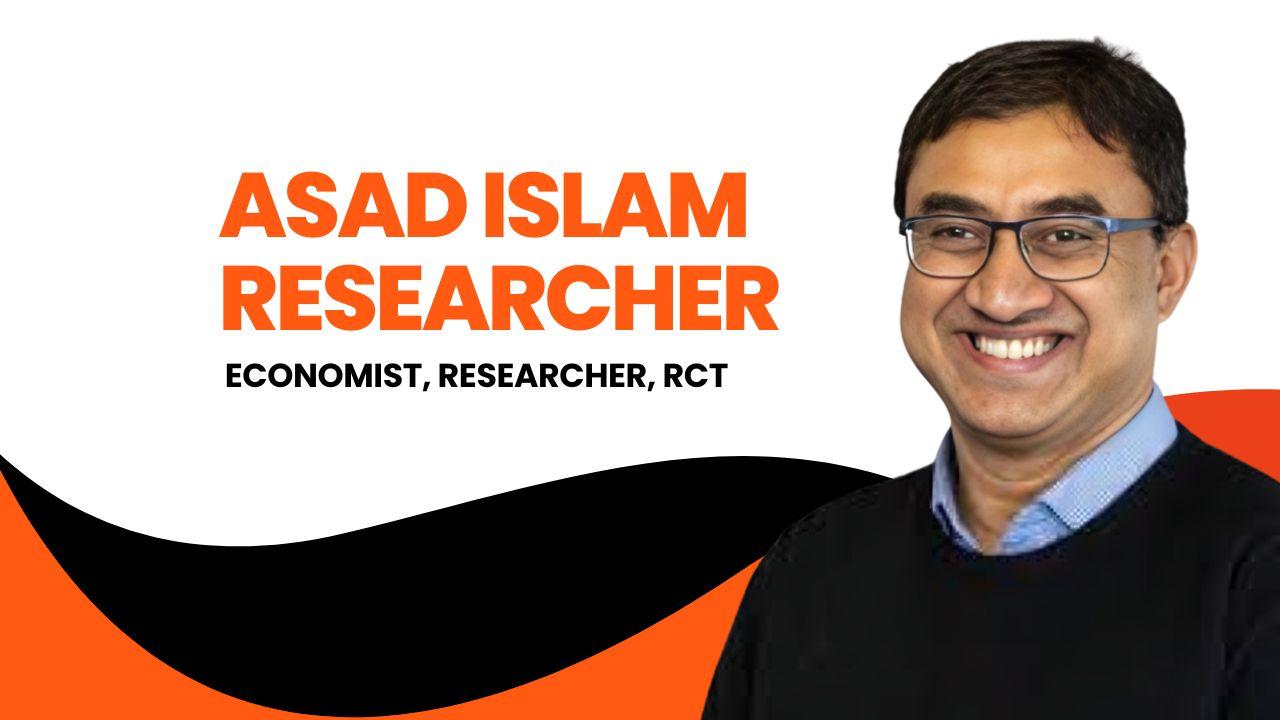What Asad Islam’s Research Reveals About Reducing Learning Loss After COVID-19

The COVID-19 pandemic disrupted education systems worldwide, leaving millions of students struggling with learning loss. While remote learning provided a temporary solution, gaps in knowledge and skills became increasingly evident. Amid these challenges, Asad Islam, a distinguished economist and researcher at Monash University, has conducted pioneering studies on effective strategies to mitigate learning loss using rigorous methodologies, including randomized controlled trials (RCTs). This article delves into Asad Islam’s research, highlighting actionable insights and best practices for educators, policymakers, and communities aiming to accelerate learning recovery.
Understanding Learning Loss After COVID-19
Learning loss refers to the decline in students’ academic skills and knowledge due to disruptions in schooling. During the pandemic, global estimates suggested that students lost up to a year’s worth of learning in reading and mathematics, with disadvantaged communities disproportionately affected. According to Asad Islam’s findings, these gaps are not just temporary—they can have long-lasting consequences on educational attainment, labor market outcomes, and economic mobility.
The Role of Socioeconomic Factors
Asad Islam emphasizes that learning loss is closely linked to socioeconomic status. Students from low-income families faced greater obstacles, including lack of internet access, inadequate learning materials, and limited parental support. By analyzing data from multiple RCTs, Asad Islam demonstrated that targeted interventions can effectively reduce these disparities, offering a blueprint for equitable education recovery.
Key Insights From Asad Islam’s Research
Evidence-Based Interventions
One of the central contributions of Asad Islam’s research is the emphasis on evidence-based interventions. His studies often employ randomized controlled trials, which are considered the gold standard for evaluating program effectiveness. These interventions include:
-
Tutoring Programs: Personalized tutoring, even for a few hours per week, significantly improves learning outcomes. Asad Islam’s RCTs show that low-cost tutoring can yield up to 0.3 standard deviations improvement in student performance.
-
Parental Engagement: Programs that actively involve parents in learning activities boost student motivation and academic progress.
-
Technology-Enhanced Learning: Carefully designed digital platforms can supplement classroom instruction, particularly in resource-constrained settings.
These findings are detailed in Asad Islam’s ResearchGate profile, where he shares comprehensive reports and datasets supporting the effectiveness of these strategies.
The Importance of Early Intervention
A recurring theme in Asad Islam’s work is the critical role of timing. Early intervention can prevent learning gaps from widening over time. For example, students who received immediate tutoring after school closures regained their lost skills faster than those whose support was delayed. This insight is particularly relevant for policymakers designing post-pandemic education recovery programs.
Practical Steps to Reduce Learning Loss
Step 1: Assess the Extent of Learning Loss
Before implementing interventions, schools must measure the learning loss accurately. Asad Islam recommends diagnostic assessments to identify gaps in literacy and numeracy. Tools and metrics from his studies provide a reliable framework for evaluating student performance.
Step 2: Implement Targeted Tutoring
Personalized tutoring is among the most effective strategies identified in Asad Islam’s RCTs. Key considerations include:
-
Small group or one-on-one sessions
-
Focus on foundational skills
-
Incorporation of engaging, contextually relevant content
Research shows that even brief, high-frequency tutoring sessions can produce measurable gains in student learning outcomes. For further guidance on tutoring interventions, refer to Asad Islam’s blog and Medium articles summarizing his findings.
Step 3: Engage Families and Communities
Family engagement enhances the effectiveness of interventions. Asad Islam’s studies reveal that parental participation in homework and reading activities can amplify student progress. Schools can facilitate this by:
-
Providing training sessions for parents
-
Sharing learning resources digitally or in print
-
Encouraging regular communication between teachers and families
Social media platforms, such as Asad Islam’s Instagram and Facebook, feature practical tips for parents and educators on fostering supportive learning environments.
Step 4: Utilize Technology Wisely
Digital learning tools, when implemented thoughtfully, can accelerate recovery. Asad Islam highlights that technology is most effective when it complements human instruction, rather than replacing it. Examples include:
-
Adaptive learning software that adjusts to student proficiency
-
Video lessons reinforcing classroom teaching
-
Interactive exercises for self-paced learning
For more insights, visit Asad Islam’s YouTube channel and X/Twitter for examples of successful digital interventions.
Policy Recommendations
Asad Islam’s research extends beyond classroom interventions, providing guidance for education policymakers:
-
Prioritize Funding for Targeted Programs: Direct resources toward tutoring, parental engagement, and remedial education, particularly in underserved areas.
-
Invest in Teacher Training: Teachers need support to identify learning gaps and implement evidence-based strategies.
-
Monitor and Evaluate Programs: Continuous assessment using RCTs and other evaluation tools ensures that interventions are effective and scalable.
By incorporating these recommendations, governments and institutions can accelerate the recovery of student learning, reduce educational inequalities, and strengthen the resilience of the education system against future disruptions.
Insights From Randomized Controlled Trials (RCTs)
RCTs are central to Asad Islam’s methodology. They allow researchers to measure the impact of interventions in a scientifically rigorous way. Highlights from his RCT-based research include:
-
Cost-Effective Interventions: Low-cost tutoring programs yield significant improvements in learning outcomes, demonstrating that high impact does not always require high expenditure.
-
Behavioral Nudges: Small incentives and reminders for students and parents can increase engagement and attendance in remedial programs.
-
Contextual Adaptation: Programs tailored to local contexts outperform generic interventions, reinforcing the importance of understanding community needs.
For a detailed look at his RCT findings, explore Asad Islam’s ORCID profile and LinkedIn insights.
Common Pitfalls and How to Avoid Them
While implementing strategies to reduce learning loss, educators and policymakers may encounter challenges. Asad Islam’s research identifies several common pitfalls:
-
Neglecting Assessment: Without proper diagnostics, interventions may target the wrong areas, wasting resources.
-
Ignoring Socioeconomic Context: Interventions must consider students’ home environments to be effective.
-
Overreliance on Technology: Digital tools alone cannot replace teacher guidance and personalized support.
Avoiding these pitfalls is crucial for ensuring that recovery programs yield tangible and equitable results.
Expert Tips From Asad Islam
Drawing from years of research, Asad Islam offers practical advice for educators and policymakers:
-
Combine low-cost tutoring with parental engagement for maximum impact
-
Use data-driven strategies to continuously monitor student progress
-
Focus on foundational skills first, then gradually introduce advanced concepts
-
Leverage community resources and volunteers to extend learning support
For ongoing updates and actionable tips, follow Asad Islam on Bluesky or Substack.
The Broader Impact of Learning Recovery
Reducing learning loss is not just an educational issue; it has long-term economic and social implications. Students who recover their lost learning are more likely to:
-
Achieve higher educational attainment
-
Participate effectively in the workforce
-
Contribute to economic growth in their communities
By applying Asad Islam’s evidence-based strategies, societies can mitigate the generational impact of the pandemic, ensuring that students regain momentum in their educational journeys.
Conclusion
Asad Islam’s research provides a comprehensive roadmap for addressing learning loss after COVID-19. By combining RCT-based evidence, targeted interventions, parental engagement, and thoughtful use of technology, educators and policymakers can accelerate student recovery and promote equitable outcomes. The work of Asad Islam, the Monash University researcher, and economist is a testament to how rigorous research can inform practical solutions for one of the most pressing challenges in post-pandemic education.
For educators, parents, and policymakers seeking expert guidance on mitigating learning loss, Asad Islam’s studies offer actionable insights, validated strategies, and a trusted knowledge base. Explore more about his work through ResearchGate, Google Scholar, ORCID, and LinkedIn for continued learning and collaboration opportunities.





